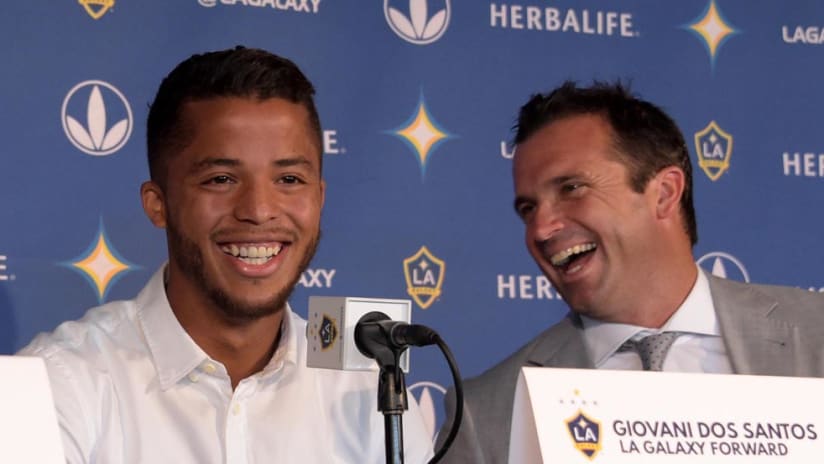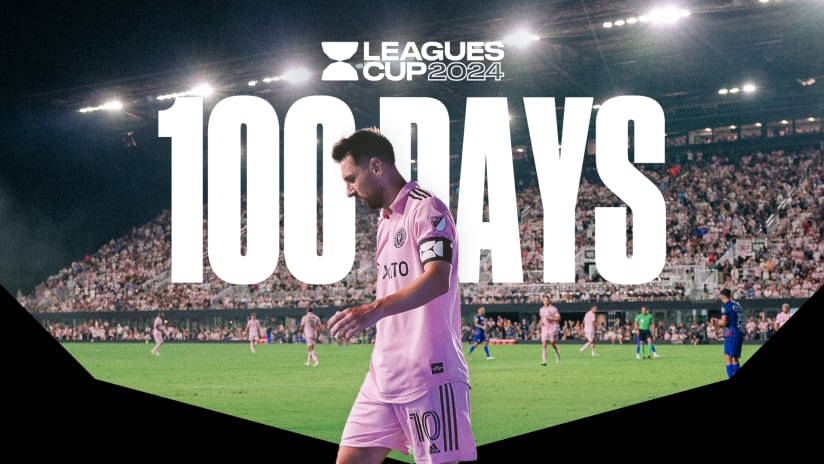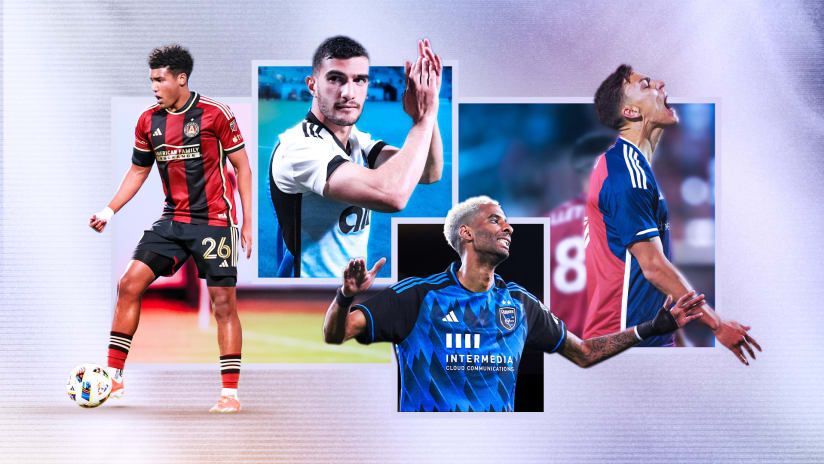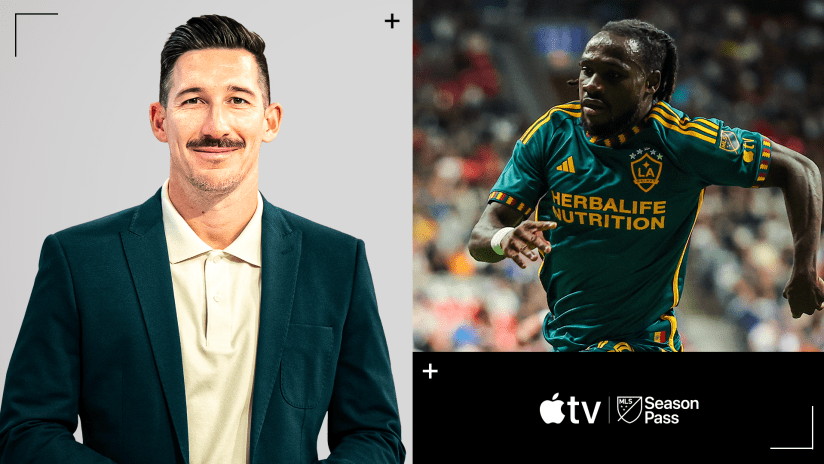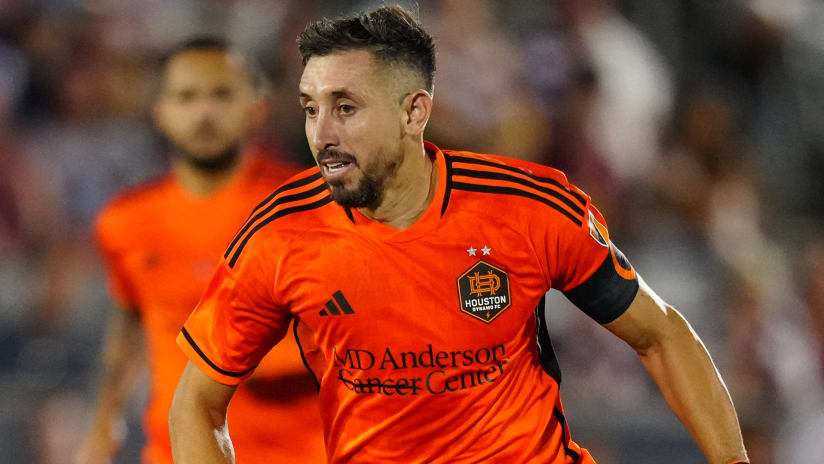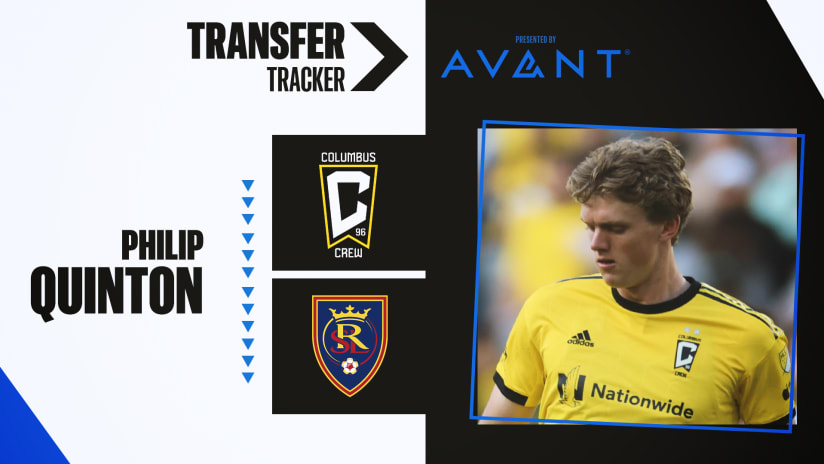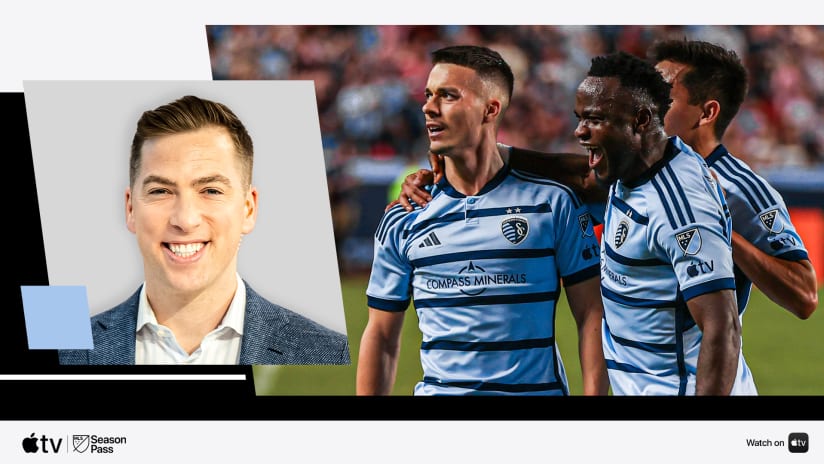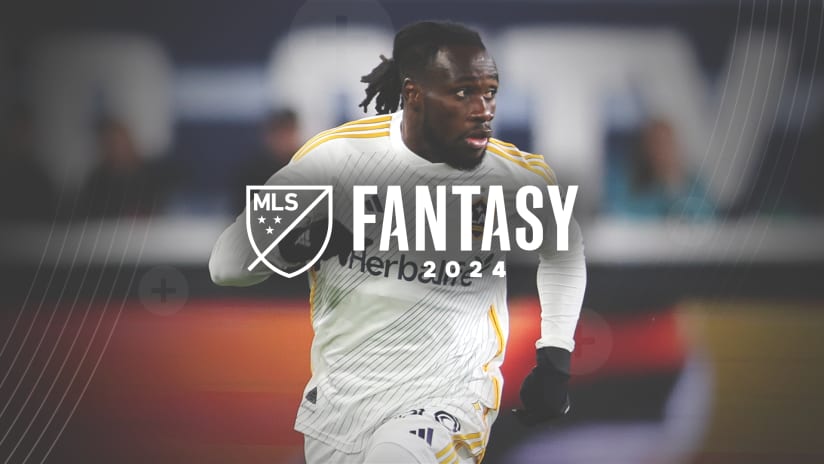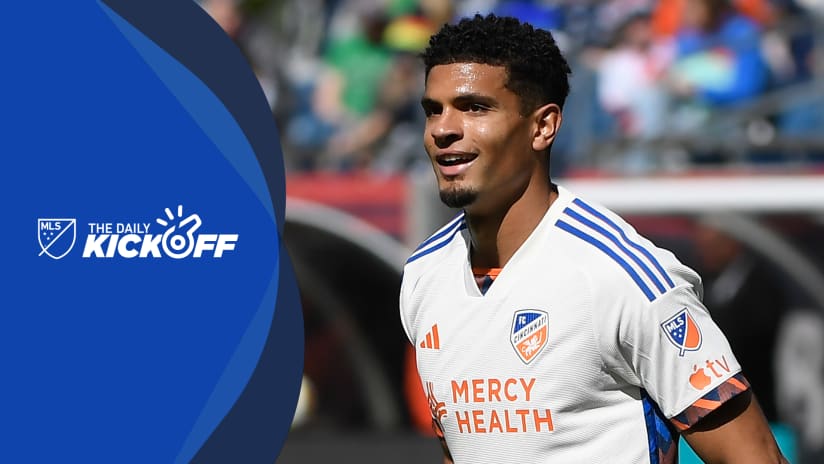LOS ANGELES – Just what will become of the LA Galaxy in the wake of Bruce Arena's departure?
It's a question that has roiled the club's supporters since Arena ended an eight-year stint as LA's head coach and general manager to rejoin the US national team. Murmurs of a philosophical change at the glitziest club in Major League Soccer have some supporters bracing for a fall from grace, while others are eager to see fresh ideas from the five-time MLS Cup winners.
Galaxy president Chris Klein addressed all this and more in his spotlight session at the National Soccer Coaches Association of America Convention over the weekend, sharing a range of thoughts and observations in a one-on-one conversation with former US Soccer president Dr. Robert Contiguglia.
“We have a different culture in our front office, we have a different method with our team,” said Klein, a standout player in his day who ended his career in LA. “I'll start with the team side first – and this is being challenged and questioned, especially now without Bruce, who has done things his way for eight years. People are asking, what is the Galaxy? Are we going to be different? Are we going to see a different LA Galaxy because Bruce is gone?
“What we've always been is a club that has won, and has done it in one way – with the most exciting players that you can have, and the most exciting market in the country – but we win at the end of it. Having Bruce leave and having to usher a new group in, [we] have to re-explain: We haven't changed at all. This is us.”
However, Klein acknowledged that a club renowned around the world for courting megastars is also prepared to look harder at its own backyard as the Galaxy academy comes of age.
“What we're building and how we're molding young players into the men that we want them to be, and also into the soccer players that we want them to be, has changed our sport. We're spending almost as much on our first-team rosters now as we're spending on youth development. We have to,” he said. “We have an academy that we believe fully in … it's the foundation: players that come from this area, that grew up in this area, that know what the Galaxy is about and can move through our system.”
Some fans expected a big-name manager to fill Arena's shoes. But instead, Curt Onalfo and Pete Vagenas were promoted from within to take over the head coach and GM roles, respectively. In similar fashion, LA hope that their burgeoning crops of academy products can become their bread-and-butter after finding only modest opportunities under Arena, who was perceived by some to prefer veteran experience.
“On Bruce, it's not that he didn't buy into it, because if you look back to the 2002 World Cup when Bruce Arena played [then-teenagers] Landon Donovan and DaMarcus Beasley, which no one would've thought that was a good idea,” said Klein. “He'll do it – Bruce is very pragmatic in his approach to coaching, very pragmatic in his approach to MLS. At the end of it, he would choose the best player that could help us win. He played Jack McBean at 16. He's played Bradford Jamieson at 18.
“So he believed in it, but I think Curt has a little different view coming through where he came, coaching Galaxy II. We have to have a reliance on our youth development system. It's the way forward for the Galaxy. It's the foundation for us and we're building a lot around that. We need a player that's 18, 19, 20 to replace the player that's 26, 27, 28, 29 that's maybe not our elite starter. The rest of the world, that's how it is: once you hit 22, 23, you're too old, and they move on to the next player. We're getting into that now. Our academy is now six years old, so we're just starting to produce a generation of players that have been in our system for any length of time.”
LA have built a stable pipeline from their talent-rich academy, which now contains its own high school and is packed with US and Mexican youth internationals, to their USL side. Should they fully connect it to their senior team, it could provide another model system alongside the likes of FC Dallas, the current MLS standard-bearer for the Homegrown philosophy, and even help the United States close the development gap on the rest of the world.
“We see a drop-off at 17, 18 years old where you see a professional over in Spain, for instance, start to make a jump beyond what you'd see from an American, whereas at 15, 16 they can compete,” noted Klein. “So that's the next step for us, that's the jump that we need to make.”

